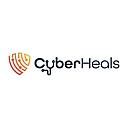
Junior Penetration Tester
Cyber Heals InfotechThis is a remote position.
Job Overview:
As a Junior Penetration Tester, you will assist in conducting authorized simulated attacks on computer systems, networks, and applications to find and report security weaknesses and vulnerabilities. You will work under the guidance of more experienced security professionals to help organizations strengthen their defenses against actual attacks. This role requires a mix of technical skills, curiosity, and a passion for cybersecurity.
Key Responsibilities:
1. Vulnerability Assessment
Conduct vulnerability scans and basic penetration tests on systems, networks, and web applications.
Assist in identifying security flaws and vulnerabilities using a variety of testing tools and manual techniques.
Work alongside senior penetration testers to validate and classify vulnerabilities based on their severity and potential impact.
2. Report Writing and Documentation
Document findings from tests and assessments clearly and concisely.
Prepare reports that outline the methods used for testing, the findings, and recommendations for remediation.
Communicate findings to technical and non-technical stakeholders to help them understand the risks associated with vulnerabilities.
3. Remediation and Follow-Up
Assist with the development of remediation strategies for identified vulnerabilities.
Work with relevant teams to patch vulnerabilities and verify that fixes are effective.
Participate in follow-up tests and assessments to ensure that vulnerabilities have been fully resolved.
4. Research and Development
Stay updated with the latest developments in cybersecurity, including new tools, exploits, and practices.
Participate in training and professional development opportunities to enhance skills and knowledge.
Contribute to internal knowledge bases and security guidelines.
5. Ethical Compliance and Integrity
Adhere strictly to all legal and ethical guidelines during testing processes.
Ensure the confidentiality and integrity of client information at all times.
Operate with a high degree of professionalism and ethical judgment.
Experience: Experience in information security or related fields such as IT support or network administration is beneficial. Internships in cybersecurity will be highly regarded.
Technical Skills: Basic knowledge of penetration testing tools and methodologies. Familiarity with programming/scripting languages (e.g., Python, Bash) is a plus.
Analytical Skills: Ability to think like both an attacker and a defender to identify and exploit vulnerabilities.
Communication Skills: Strong written and verbal communication skills for report writing and presenting findings.
Certifications: Working towards obtaining industry-recognized certifications like OSCP (Offensive Security Certified Professional), CEH (Certified Ethical Hacker), or others is advantageous.